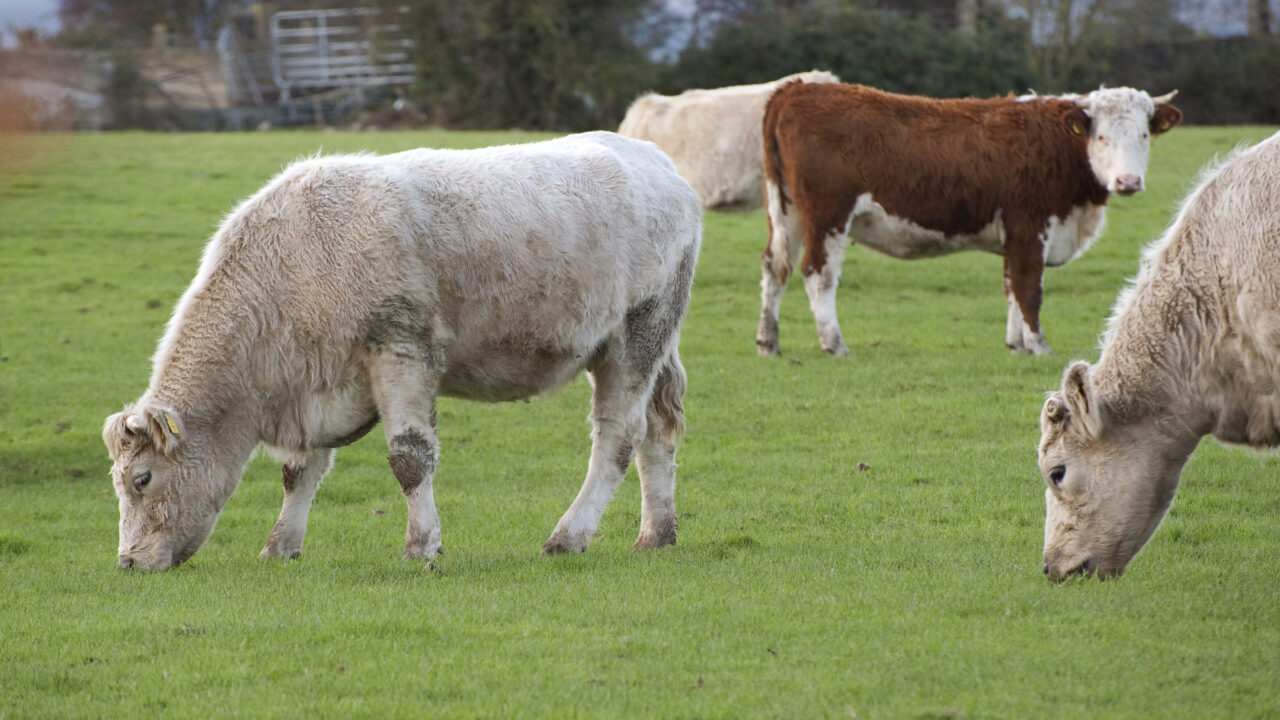British finishers are wincing at the most recent evidence that the UK’s prime beef cattle market is unacceptably volatile.
And, as ex-farm prices, once again, descend into oxygen tank territory, some are suggesting multiple retailers should encourage their processor partners to introduce supply contracts.
The industry is aware that supermarkets, which are keen to secure predictable deliveries of the type of beef they require through the next decade and beyond, have discussed contracts with their suppliers for some time.
However, one of the reasons there has been no visible move at procurement level is because processors, and by implication retailers too, are still not sure whether contracts would obstruct access to cheaper beef if ex-farm prices fell away.
This position contradicts the overview that prime cattle prices at UK, Irish and global level can only move upwards in the medium term and beyond – witness (heavy) prime cattle in the US coming forward at an average of £1,800 apiece and Australian breeders selling weaned calves to average 230p/live kilo on the back of unusually heavy beef exports to high priced markets in China.
It also mirrors, although from the opposite angle, farmer fears that contracts would leave them beached in price terms if ex-farm prices soared unexpectedly.
There can be no doubt that British finishers are agitated about being wounded badly for the second time in 12 months.
They speak of beginning to feel they were out of the woods when commercial cattle rose to relatively comfortable levels at Christmas only to be faced with the possibility that the average UK price could still crash below last May’s levels.
For many these ups and down, in broad terms from 15-25%, are too much to take and being on the receiving end of a second big hit in just 12 months has persuaded some to stand back from an unforgiving store cattle market and put their feeding operations in moth balls.
It is this type of operator who is leading discussion on whether contracts could save them from roller coaster sickness.
It is still discussion, perhaps only the equivalent of a business rapidly getting out of its depth grabbing at the first thing that floats past, but it is noticeable that even bitter critics of the contract system recognise its ability to stabilise finisher confidence as well as future cattle supplies.
However, and this reflects the undeniable absence of supply chain trust at many levels, they also fear that contracts could give predatory-minded retail/processor alliances (and there are at least a couple which spring to mind) even more grip on the market.
At the same time NFU Scotland (NFUS) is worried that long Scottish waiting lists (there have been four to five week queues for over a month) will result in cattle that would otherwise have been sold within weight and fat cover specifications being discounted when finally presented for slaughter.
It wants a cross-industry effort to be made to avoid to a repeat of this pile up and has suggested that forward planning between farmers, processors and retailers could avoid costly lurches between feast and famine.
It does not mention contracts but does day that given fair warning, clear signals, and proper incentives Scotland’s beef producers would be able to adapt their systems so they were better able to supply the Scotch beef market on an all- year round basis.
The Scottish Association of Meat Wholesalers (SAMW) appeared to support this view when it said last week that its members would find it easier to develop important export markets if prime cattle came forward more evenly over the year.
It explained that the inability of its members to wholeheartedly pursue new export opportunities in the past, because supplies were too tight, meant it has been left with one hand tied behind its back after being faced with so much beef over January-April.
The Association has no doubt that export markets will be crucial to Scottish industry development but warns that success depends on consistently even deliveries because customers are put off when supplies fluctuate.
Robert Forster is a UK-based journalist who produces the Beef Industry Newsletter.

